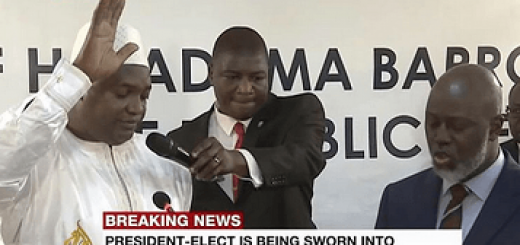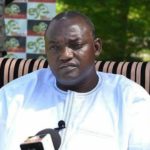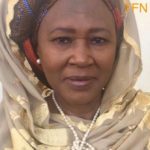The Gambia’s new president Adama Barrow will return to the capital Banjul later today, and his first job is to deal with an internal crisis after it emerged his choice of vice president, Fatoumata Jallow-Tambajang, may be too old, constitutionally, for the role.
Barrow’s return comes days after long-standing ruler Yahya Jammeh, who initially disputed the election results, was forced into exile.
Barrow had to be inaugurated in neighbouring Senegal as regional powers threw their weight behind the new leader and threatened military intervention if Jammeh refused to stepped down after 22 years in power.
Barrow aide Amie Bojang said yesterday the priority would be ‘putting into place the pillars of reform and human rights’.
Barrow will be staying at his own home until further notice while State House, Jammeh’s former seat of power, is assessed for potential risks.
Residents in the capital said Barrow’s arrival would mark the beginning of the healing process after divisions created by Jammeh’s regime.
Jammeh, a former military officer, finally stepped down on Saturday and went into exile in Equatorial Guinea under diplomatic pressure and after troops from the Economic Community of West African States, or ECOWAS, crossed into The Gambia.
Jammeh’s government gained a reputation for the torture and killing of perceived opponents and many Gambians are furious that he will not face trial at home for those abuses.
About 4,000 West African troops remain in The Gambia charged with ensuring safety, as it is believed rogue pro-Jammeh elements remain in the security forces that were once under his personal control.
Barrow must also deal with latent ethnic tensions between Jammeh’s minority Jola people and the majority Mandinkas, to whom Barrow belongs.
Marcel Alain De Souza, the head of ECOWAS, told a briefing in Nigeria on Tuesday that the troops were working to secure Banjul and the surrounding area for Barrow’s return.
Jammeh pitched The Gambia into turmoil in December when he refused to accept his loss in an election to Barrow and demanded another vote.
Barrow has assured Jammeh that he will have all the rights legally ensured to an ex-president, which under Gambian law include immunity from prosecution, barring a vote by two-thirds of the national assembly.
The new government has also confirmed that Jammeh will be permitted to keep a fleet of luxury cars, while authorities have accused the former strongman of plundering state coffers before heading into exile, making off with $11m.
In New York, the UN envoy for West Africa, Mohamed Ibn Chambas, briefed the Security Council on The Gambia during a closed session and stressed that the United Nations was working to bolster stability.
Chambas is due to accompany Barrow when he returns to Banjul later today.







